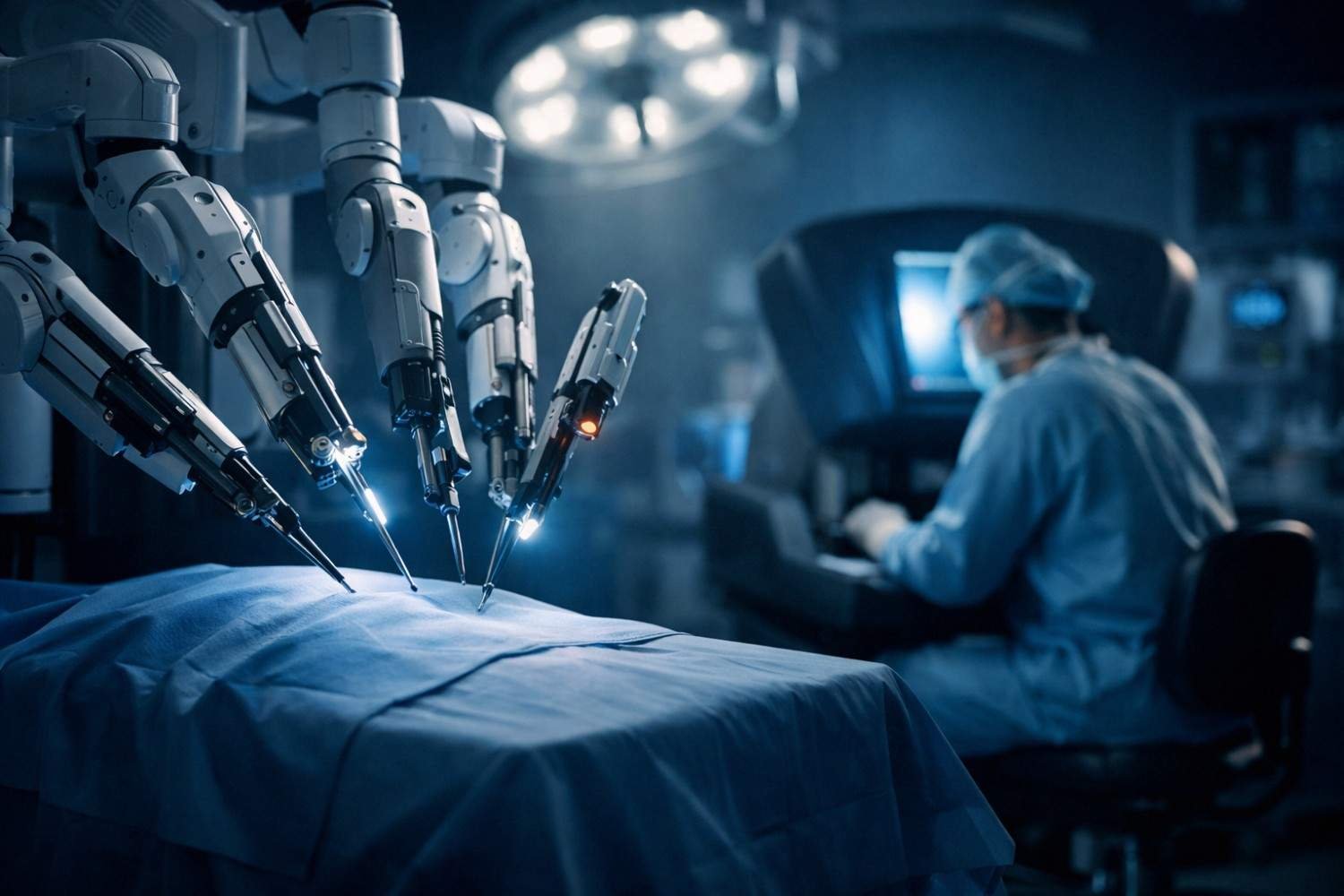

In recent years, the advancement of technology, particularly Artificial Intelligence (AI), has revolutionised various sectors, including healthcare. One area where AI has shown tremendous potential is in assisting doctors with lung cancer diagnosis. This innovative technology improves diagnosis accuracy and patient outcomes by facilitating early detection and timely intervention.
Lung cancer is still one of the primary reasons for cancer-related deaths globally. The challenges associated with its diagnosis are numerous, ranging from the complexity of identifying early-stage tumours to differentiating between benign and malignant lesions. Traditional diagnostic methods often rely on radiological imaging, such as X-rays and CT (Computed Tomography) scans and invasive procedures like biopsies. However, these approaches have limitations and can sometimes lead to misdiagnosis or delayed treatment initiation.
This is where AI steps in as a game-changer. AI systems can quickly and accurately analyse big medical data using machine learning algorithms. This includes interpreting imaging scans, identifying subtle patterns indicative of cancerous growth, and providing real-time diagnostic insights to healthcare professionals. Moreover, AI algorithms continuously learn and improve their performance over time, making them invaluable tools in the fight against lung cancer.
Early detection is necessary for improving the prognosis of lung cancer patients. Studies have shown that the survival rates are significantly higher among individuals whose cancer is diagnosed at an early stage compared to those diagnosed at later stages. AI-powered screening tools have demonstrated impressive accuracy in detecting lung nodules and other suspicious lesions at their earliest stages, even before they become clinically apparent. This proactive approach enables healthcare providers to initiate timely interventions, such as treatment or surveillance, potentially saving lives.
AI algorithms excel in analysing complex medical images and identifying subtle abnormalities that may evade the human eye. AI can improve diagnostic accuracy and reduce the likelihood of errors by assisting radiologists and pathologists in interpreting imaging studies and histopathological slides. Moreover, AI systems can prioritise urgent cases for immediate review, streamlining the diagnostic process and reducing patient waiting times. This enhances efficiency and ensures critical findings receive prompt attention, improving patient outcomes.
In addition, AI is crucial in guiding personalised treatment strategies for lung cancer patients. AI can identify predictive biomarkers and recommend tailored therapeutic approaches by analysing vast datasets encompassing patient demographics, clinical characteristics, and treatment outcomes. This approach maximises treatment effectiveness while minimising side effects, improving cancer patients' quality of life.
While the potential benefits of AI in lung cancer diagnosis are undeniable, several challenges must be addressed to ensure its widespread adoption and integration into clinical practice. These include regulatory considerations, data privacy concerns, and the need for rigorous validation of AI algorithms across diverse patient populations. Collaborative efforts between healthcare stakeholders, technology developers, and regulatory bodies are essential to overcome these challenges and harness AI's full potential in improving lung cancer care.
Finally, integrating AI into lung cancer diagnosis represents a paradigm shift in healthcare delivery. Dr. Parveen Yadav and his team at Chest Surgery India, a leading lung cancer hospital in New Delhi, recognise the transformative potential of AI technology in enhancing diagnostic accuracy, improving patient outcomes, and advancing personalised treatment approaches for lung cancer. Embracing AI innovations can transform healthcare, saving lives and empowering patients for a healthier future.
1. How does AI improve lung cancer diagnosis?
Ans: AI enhances accuracy and efficiency by analyzing imaging scans and identifying patterns indicative of cancer.
2. Can AI detect lung cancer early?
Ans: Yes, AI-powered tools can detect lung nodules and lesions at very early stages, improving patient outcomes.
3. Does AI help in personalizing lung cancer treatment?
Ans: AI analyzes patient data to recommend tailored treatment strategies, optimizing effectiveness while reducing side effects.
4. What challenges face AI integration in lung cancer diagnosis?
Ans: Challenges include regulatory hurdles, data privacy concerns, and the need for validation across diverse patient populations.
5. Why is early detection of lung cancer important?
Ans: Early detection significantly improves survival rates by allowing for timely intervention and treatment.
About Dr. Parveen Yadav
Dr. Parveen Yadav is a highly recommended surgeon or specialist for Lung cancer treatment in Gurgaon, Delhi. He specialises in minimally invasive and robotic thoracic onco surgery. He has been recognised for 17+ years as the best chest surgeon in Gurgaon, Delhi, for his expertise in treating chest-related (chest surgery) ailments, such as Esophageal, Lung, Tracheal (Throat), Chest wall tumours, Mediastinal Tumors, Empyema, and Bronchopleural Fistula cancer. With a focus on precision and innovation, he is dedicated to offering exceptional care to his patients, utilising advanced techniques to ensure optimal outcomes.

18+ Yrs Exp | 5,700+ Thoracic & Robotic Cancer Surgeries
Dr. Parveen Yadav is a Director and Senior Consultant in Thoracic and Surgical Oncology, specializing in minimally invasive and robotic lung and esophageal surgeries, with advanced training from AIIMS and Tata Memorial Hospital.
View Full Profile Pain After Thoracic Surgery: Tips for Smooth Recovery
Pain After Thoracic Surgery: Tips for Smooth Recovery
 Diet & Lifestyle for Thoracic Cancer Prevention | Dr. Parveen Yadav
Diet & Lifestyle for Thoracic Cancer Prevention | Dr. Parveen Yadav
 Robotic Thoracic Surgery: How Da Vinci Technology is Revolutionizing Chest Procedures
Robotic Thoracic Surgery: How Da Vinci Technology is Revolutionizing Chest Procedures
Struggling with pain after chest surgery? Dr. Parveen Yadav shares expert recovery tips, causes of shoulder pain, PTPS signs, and what your discharge sheet won't tell you.
Discover how diet, breathing exercises & daily habits help prevent and recover from thoracic cancer. Expert insights from Dr. Parveen Yadav, Chest Surgery India
Discover how Da Vinci robotic surgery is transforming chest procedures in Gurgaon. Less pain, faster recovery & expert care by a certified thoracic surgeon
Copyright 2026 © Dr .Parveen Yadav all rights reserved.
Proudly Scaled by Public Media Solution!